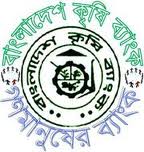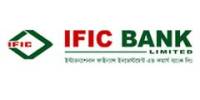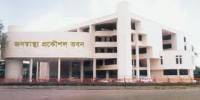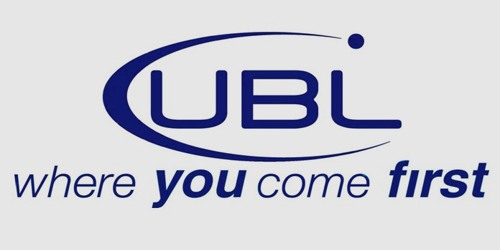Profile of bangladesh krishi Bank
An Over View of Bangladesh Krishi Bank
Brief History of Origin
Bangladesh Krishi Bank (BKB) has been established under the Bangladesh Krishi Bank order 1973 (President’s Order No 27 of 1973). Its Head Office is located at Krishi Bank Bhaban, 83-85 Motijheel Commercial Area, Dhaka-1000, Bangladesh.
The BKB is a customer-oriented bank and their motto is “Service First”. The philosophy of The BKB is to be the most caring and customer friendly provider of financial services, creating opportunities for the marginal people along with common people in more places.
The primary objective of BKB is to provide credit facilities to the farmers for the development of agriculture and entrepreneurs engaged in development of agro-based, cottage industries and large scale industries with an aim to alleviate poverty of the country as a largest government institution.
Present Capital Structure
The Bank is guided in accordance with the policies and principles of the Government of the Peoples Republic of Bangladesh. BKB has an authorized capital of Tk. 15,000 Million (Taka Fifteen thousand Million) only and paid up capital of Tk. 9,000 Million (Taka Nine thousand Million) only which is fully paid by the government. The Bank started commercial functioning since 1977 to generate more loan able fund from the idle rural and urban savings and invest them for the betterment of our economy.
| 1 | Authorized Capital | Taka 15,000 Million |
| 2 | Paid up Capital | Taka 9,000 Million |
| 3 | Reserve Fund | Taka 2,051 Million |
The Board of Directors:
The bank has a board of directors comprising 11 members. A chairman heads the board. The Directors represent both public and private sectors and are appointed by the government. The Board Chairman is generally an experienced professional/ex-professional who has wide acceptability and rapport. The Bank commenced very recently with Mr. Khondokar Ibrahim Khaled as the Chairman and Mr. Md. Muktar Hussain as the Managing Director. Both of them have a long experience in the financial sector of our country. By their pragmatic decision and management directives in the operational activities, the Bank has earned a secured and distinctive positive position in the banking sector in terms of performance, growth and excellent management.
Human resources of BKB:
Now, the authority of BKB is very much concerned about staff recruitment and training. Every year it provides a schedule for development and training purposes. The bank recruited officers in 2008-2009 through Bankers’ Recruitment Committee (BRC) which is conducted by Bangladesh Bank. Of late staffs are recruited by the own arrangement of BKB.
| Human Resources | Authorized | Actually | Surplus/(Deficit) |
| 1st Class Officer | 3940 | 2819 | (1121) |
| 2nd Class Officer | 2506 | 1560 | (946) |
| Total Officer | 6446 | 4379 | (2067) |
| 3rd Class Staff | 5496 | 3080 | (2416) |
| 4th Class Staff | 1738 | 1707 | (31) |
| Total Staff | 7234 | 4787 | (2447) |
| Total | 13680 | 9166 | (4514) |
Controlling Offices & Branches:
Bangladesh Krishi Bank operates through 973 domestic branches and maximum of them are situated in the rural area. The Corporate Head Office of the Bank is located at Dhaka with one local office (Main Branch), seven corporate branches and nine divisional offices all over the country.
| A | Offices under Head Office | Number |
| 1 | Division | 4 |
| 2 | Local Principal Office | 1 |
| 3 | Department | 29 |
| 4 | Training Institute | 1 |
| B | Field Offices | Number |
| 1 | Division Office | 9 |
| 2 | Division Audit Office (DAO) | 9 |
| 3 | Chief Regional Office (CRM) | 29 |
| 4 | Regional Office (RO) | 24 |
| 5 | Regional Audit Office (RAO) | 53 |
| 6 | Branches | 973 |
| C | Branch Segregation | Number |
| 1 | Corporate Branch | 8 |
| 2 | Branch in Town | 76 |
| 3 | Branch under Municipality | 59 |
| 4 | Thana level Branch | 246 |
| 5 | Union level Branch | 592 |
Name of Division Offices:
BKB has nine division offices all over the country. These are
1) Dhaka Division
2) Chitagong Division
3) Khulna Division
4) Sylhet Division
5) Barishal Division
6) Moymensingh Division
7) Comilla Division
8) Faridpur Division
9) Kushtia Division
Mission & Vision of the Bank:
As a specialized government Bank, the mission & vision of BKB is to play a catalyst role by providing excellent performance in respect of service, profitability and strength with a view to contribute in the development process of agriculture, trade and industrialization through providing credit facilities. The corporate missions of the Bank are mentioned below:
To provide excellent quality customer service.
To provide high quality financial services in foreign trade.
To maintain corporate and business ethics.
To create employment opportunity by project finance.
To play role in the socio-economic development.
To become trustworthy to the depositors and the borrowing customers
Objectives of the Bank:
For proper utilization of agricultural loan, Bangladesh Krishi Bank is the greatest national institution. For the development of rural areas, this Bank works for overall development and gaining dependency in food production. The lion’s share of agricultural loan is distributed through this bank. Though it is a specialized Bank in agricultural sector, it functions like all other commercial banks. The main objectives are as follows:
To create new opportunities for its clients such as farmers, traders, industrialists and common people.
To give customized services and maintains harmonious banker-client relationship.
To contribute towards formation capital, growth of savings & investment in trade, commerce & industrial sectors.
Products & Services:
The bank has wide range of Product lines to suit the need of the people of all strata. In addition to convention product both Asset and liability sides the Bank offers special credit products for its customer. These are:
- Consumer financing
- Lease Financing
- Small Loan
- Long-term & Short term loan financing
- SME and Agro Based
Ancillary services:
- Foreign Currency Remittance
- Representative service
- Consultancy
Foreign Exchange Business:
Due to the induction of a large number of banks and financial institution, the business of banking in Bangladesh is getting increasingly complex and intensely competitive. In order to survive successfully in the competitive market, it is very urgent for the bank to get ready for facing the threats and challenges. With a view to face the challenges in a competent manner, BKB initiated the foreign exchange business since 1984 with two authorized dealer branches. Presently the bank is operating its foreign exchange business through sixteen authorized dealer branches.
| 1 | Number of Authorized Dealer (AD) Branches | 16 |
| 2 | Correspondent Bank | 229 |
| 3 | Number of (Taka Drawing Arrangement) TDA Agencies | 21 |
| 4 | Number of nominated branches for TDA | 973 |
Agricultural credit
Agricultural credit:
As food security, improvement of the living standard and generation of employment opportunities of the huge population of the country are directly linked to the agriculture sector, it is imperative for greater institutional and policy supports for the sector. There have been continued efforts by the Government for the overall development of this sector to fulfill the food and nutritional demand of the growing population of the country and, to ensure and sustain dependable food security. Special emphasis has been laid on building up a modern agriculture system based on appropriate technology. Keeping in view, the importance of credit for ensuring sustainable growth in the agriculture sector, annual programme based indicative disbursement targets of credit by the lending banks are designed. Yearly targets of disbursement are set by the banks themselves taking into consideration expected demand for credit for the year, previous years’ disbursements and the availability of fund. In recent time, private commercial banks have come forward to participate in agricultural and rural finance programme along with the specialised financial institutions and stateowned commercial banks (SCBs). In FY09, the local commercial banks disbursed Taka 17.80 billion while the foreign banks disbursed Taka 5.13 billion of agricultural/rural credit. However, SCBs and specialized banks still played dominant role for the growth of agriculture and rural economy with disbursement of Taka 69.92 billion . Bangladesh Bank has announced its annual agricultural/rural credit policy and programme for FY10. The target for disbursement of agricultural/rural credit has fixed at so far the highest amount of Taka 115.0 billion for FY10. Recently, BB has also taken up a special refinancing scheme of Taka 5.0 billion and signed an agreement with BRAC, a leading nongovernmental organisation (NGO), in which sharecroppers will receive collateral-free loans for the first time. The BRAC will borrow such fund at 5 percent interest from BB and disburse at 10 percent interest to sharecroppers in groups at 150 upazilas under 35 districts across the country. Apart from agricultural credit Grameen Bank and large NGOs played significant role through their micro credit programs to boost up the rural economy in the country. With efficient disbursement and recovery position, their disbursement during FY09 amounting Taka 222.0 billion was 217.50 percent higher than the agricultural loan disbursement of the institutional lenders. SMEs also have a significant role in rural economic enlistment by generating growth and creating employment. As the economy opens up and pursues export-led growth, it is vital to strengthen the SME sector to make it more competitive.
History
Agricultural credit operations in Bangladesh have a long historical background. Despite a long term trend of decline of share of agriculture sector in GDP, the sector still accounts for about 48 percent of the total employed persons calling for greater institutional and policy supports. Besides, the recent global food crisis on account of natural calamities, increased demand for food, use of crops to produce bio-fuel in the developed countries and protectionist policy adopted by the food exporting countries highlights the urgency of increasing domestic food production and attaining food security through increased investment in this sector and, timely and adequate supply of agricultural inputs including agricultural credit.
The state owned banks still remain main sources of finance in agriculture. Two specialized banks viz. BKB and RAKUB, four nationalized commercial banks and BRDB played the key role in disbursement of agricultural loan. Among these banks, BKB had the largest share like in previous years in annual disbursement of agricultural loan. The role of private sector domestic and foreign banks in agricultural lending remained insignificant . The risk and uncertainties associated with the agricultural and rural finance appear to be the prime reason for lower involvement of private commercial and foreign banks in this sector. Shortage of required manpower, high cost of undertaking intensive supervision and monitoring and lack of information or wrong information about customers/borrowers may have discouraged these banks to dispense agricultural/rural credit. As there are ample opportunities of investment in agro based sector, these banks should include the sector in their business plan by removing aforesaid bottlenecks. A high level of yet unrealized overdue of agricultural loans of NCBs and specialized banks indicates substantial amount of their stuck-up resources, which stands as the main obstacle in recycling of their resources. With a view to meeting their resources gap, banks should gear-up recovery drive of overdue loans and reduce dependence on refinance from the central bank.
In recent time, agricultural and rural finance program seems to have boosted up as the private commercial banks began to participate along with the State-owned Commercial Banks (SCBs). The private and foreign banks came forward in distributing agricultural credit through their branch network in collaboration with NGOs, in addition to the regular agricultural credit disbursement by state owned banks and organizations. Bangladesh Bank has taken an action plan for boosting up agricultural credit already and strengthened monitoring of agricultural credit’s operation in Bangladesh.
Process of Agricultural credit
Institutional agricultural credit is provided to the Farmers who have agricultural land. A landless or marginal farmer may also have agricultural credit but that required a grantor who has agricultural land or socially bona fide person.
- Application: refers to the initial point of entry for getting agricultural credit. Application or prescribed form has filled by applicant.
- Processing: refers to the work of the Bank official for assessing and verifying the application content and recommended for sanction of fixed amount of agricultural loan (norms set by Bangladesh Bank).
- Sanction and disbursement: refers to the giving funds to the farmers for agricultural production.
- Re payment of the loan: After harvesting and selling of crops or food grains farmers have to return loan amount with interest ( at present 10% , simple rate).
- Now a days revolving credit of agricultural credit is introduced by the Bangladesh bank on selected area as experimental basis in some areas in Bangladesh. It is getting popularity in the county.
Formal Institutions of Agricultural loan providers
BSBL
After Partition of Bengal in 1947 an effort was made to set up an apex cooperative bank in East Pakistan. Accordingly, the East Pakistan Provincial Cooperative Bank was established on 31 March 1948. This bank was reconstituted as Bangladesh Jatiya Samabaya Bank Ltd after the liberation of Bangladesh. In 1977, it was renamed Bangladesh Samabaya Bank Ltd.
BRDB:
The Bangladesh Rural Development Board (BRDB) under the Ministry of Local Government, Rural Development and Cooperatives (LGRD & C) is the largest service oriented institutional setup of the Government of Bangladesh (GOB), is directly engaged in rural development and poverty alleviation activities in Bangladesh.
The BRDB was established in 1982 and has since then successfully mobilized 5.3 million beneficiaries into cooperative societies and informal groups. It pioneered the two-tier cooperative system and continues to successfully implement it to alleviate the endemic poverty of Bangladesh’s rural populace.
Bangladesh Krishi Bank
Bangladesh Krishi Bank (BKB) is a 100% government owned specialized Bank in Bangladesh. KRISHI means Agriculture. Since its inception, BKB is financing in agricultural sector remarkably. BKB also performs commercial banking. People working abroad can easily send money home through our Taka Drawing Arrangement.
The major occupation of the people of Bangladesh is “Krishi”. Krishi is a Bengali word which means “Agriculture”. About 85% of the population depends directly or indirectly on agriculture which contributes a significant portion to GDP.
Bangladesh Krishi Bank (BKB) has been established under the Bangladesh Krishi Bank order 1973 (President’s Order No 27 of 1973). BKB is a Banking Company under the Banking Company Act-1991. Its Head Office is located at Krishi Bank Bhaban,83-85 Motijheel Commercial Area, Dhaka-1000, Bangladesh.
Rajshahi Krishi Unnayon Bank:
Rajshahi Krishi Unayon Bank (RAKUB) was established by the President’s Ordinance No. 58 of 1986 with the aim of providing institutional agricultural credit for optimum utilization of agricultural potentials of Rajshahi Division. Taking over the branches and offices along with assets and liabilities of the Bangladesh Krishi Bank within Rajshahi division, the bank started functioning on 15 March 1987.
Nationalized Commercial Bank
Sonali bank Ltd.
Soon after independence of the country Sonali Bank emerged as the largest and leading Nationalized Commercial Bank by proclamation of the Banks’ Nationalization Order 1972 (Presidential Order-26) liquidating the then National Bank of Pakistan, Premier Bank and Bank of Bhwalpur. As a fully state owned institution, the bank had been discharging its nation-building responsibilities by undertaking government entrusted different socio-economic schemes as well as money market activities of its own volition, covering all spheres of the economy.
The bank has been converted to a Public Limited Company with 100% ownership of the government and started functioning as Sonali Bank Limited from November 15 2007 taking over all assets, liabilities and business of Sonali Bank. After corporatization, the management of the bank has been given required autonomy to make the bank competitive & to run its business effectively.
Janata Bank Ltd.
Janata Bank Limited, one of the state owned commercial banks in Bangladesh, has an authorized capital of Tk. 20000 million (approx. US$ 289.85 million), paid up capital of Tk. 5000.00 million, reserve of Tk.8202.00 million and retained surplus Tk. 2737.00 million. The Bank has a total asset of Tk. 282423.00 million as on 30th November 2009. Immediately after the emergence of Bangladesh in 1971, the erstwhile United Bank Limited and Union Bank Limited were renamed as Janata Bank. On 15th November, 2007 the bank has been corporatised and renamed as Janata Bank Limited.
Agrani Bank Ltd.
Agrani Bank Limited, a leading commercial bank with 867 outlets strategically located in almost all the commercial areas throughout Bangladesh, overseas Exchange Houses and hundreds of overseas Correspondents, came into being as a Public Limited Company on May 17,2007 with a view to take over the business, assets, liabilities, rights and obligations of the Agrani Bank which emerged as a nationalized commercial bank in 1972 immediately after the emergence of Bangladesh as an independent state. Agrani Bank Limited started functioning as a going concern basis through a Vendors Agreement signed between the ministry of finance, Government of the People’s Republic of Bangladesh on behalf of the former Agrani Bank and the Board of Directors of Agrani Bank Limited on November 15,2007 with retrospective effect from 01 July,2007.
Rupali Bank Ltd.
Rupali Bank Ltd. was constituted with the merger of 3 (three) erstwhile commercial banks i.e. Muslim Commercial Bank Ltd., Australasia Bank Ltd. and Standard Bank Ltd. operated in the then Pakistan on March 26, 1972 under the Bangladesh Banks (Nationalization) Order 1972 (P.O. No. 26 of 1972), with all their assets, benefits, rights, powers, authorities, privileges, liabilities, borrowings and obligations. Rupali Bank worked as a nationalized commercial bank till December13, 1986.
Private Commercial Banks & Foreign Banks
Bangladesh is mainly a land of agriculture. A vast majority of our people lives in the rural areas and their main source of income are agriculture and agro-business. To produce agricultural output, promote agro-business, facilitate agro-based services, create and sustain employment opportunities, private commercial banks and foreign banks are also disbursing agricultural loan/rural credit through its branches all over the country.
















